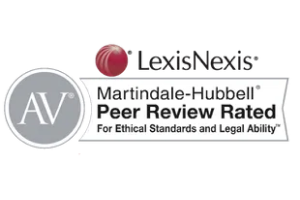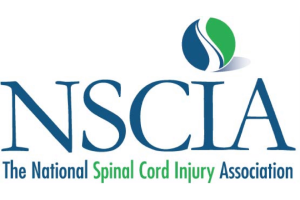Wrongful Death
Atlanta Lawyers Handling Wrongful Death Cases
Throughout Georgia and the Southeast
The trial attorneys at Ragland Law Firm, LLC have considerable experience with the preparation and trial of wrongful death lawsuits throughout all parts of Georgia and the surrounding states. A significant portion of our ongoing case load involves clients who have lost a family member due to drunk driving, medical malpractice, an unsafe product, criminal wrongdoing, or some type of accident caused by negligence. As a result, we see firsthand nearly everyday that nothing is more devastating than the unexpected death of a family member, especially when it is tragically caused by the illegal or careless conduct of another party. Under these most difficult of circumstances, we do our very best to provide legal counsel and representation which is effective, yet dignified and respectful. We believe that a wrongful death claim should bring honor to the life of the decedent and do nothing to denigrate his or her memory.
Experienced Georgia Wrongful Death Attorneys
An unexpected death often results in financial or emotional havoc in the lives of spouses, children or other family members who survive. As a result, there is a compelling need for sound legal advice about what to do next. In considering legal representation, the survivors should be aware that cases involving wrongful death are not the same as cases involving non fatal personal injuries. Wrongful death is controlled by specific Georgia statutes, and many aspects of Georgia wrongful death law differ from personal injury law. Because of the unique legal and procedural complexities involved, family members of the decedent should not entrust their case to any attorney who does not specialize in the prosecution of wrongful death claims. Wrongful death litigation is a primary focus of Ragland Law Firm, LLC. We have handled many wrongful death cases in Atlanta and many other places throughout Georgia and the Southeast. Information about some of the particular wrongful death lawsuits pursued by attorney Daniel Ragland can be found in the Case Results section of this website. We are confident that our law firm has the experience and expertise necessary to pursue wrongful death matters on behalf of the aggrieved family members.
Defining the Legal Term “Wrongful Death”
“Wrongful death” is a legal term used to describe an untimely and unnatural death caused by the negligent, unlawful or otherwise tortious conduct of another party. An action for “wrongful death” involves the assertion of a civil claim for monetary damages against the individual, business or governmental entity responsible for causing or contributing to the decedent’s fatal injuries. Wrongful death lawsuits are usually filed by one or more surviving family members of the decedent.
“Wrongful death” is a civil law concept. It has nothing to do with criminal law, although a “wrongful death” can be caused by actions which are illegal and would constitute a crime. Thus, civil wrongful death lawsuits can be filed in situations where no criminal charges are ever brought against the defendant. Likewise, a civil action for wrongful death can be brought even though criminal charges are pending against the defendant. A civil wrongful death case can be pursued before, during or after a criminal case against the wrongdoer. Any criminal case and any wrongful death case involving the same event are different proceedings and completely independent of the other. The two are not mutually exclusive and neither affects or precludes the other. Moreover, the defendant’s acquittal of criminal charges would have no bearing on the civil wrongful death case. Thus, a wrongful death claim is not defeated where the defendant escapes criminal liability. In sum, neither the filing nor the disposition of criminal charges against a defendant who causes the death of another will have any affect upon a survivor’s civil wrongful death claim.
Legal Grounds for Wrongful Death Lawsuits in Georgia
A civil claim for wrongful death can potentially arise whenever some culpable actions by an individual, business or public entity directly causes or contributes to the accidental or unnatural death of the decedent. In Georgia, wrongful death cases can be based upon any of the following tortious causes:
- Negligent or careless conduct
- Drunk driving
- Medical malpractice
- Engineering malpractice
- Nursing home neglect or abuse
- Defective products
- Unsafe prescription drugs
- Dangerous medical devices
- Contaminated food
- Illegal sale or improper service of alcohol
- Faulty construction
- Unlawful or criminal acts
- Intentional homicide
The point to be made is that a wrongful death lawsuit can be pursued in almost any circumstance where the defendant’s unsafe product or blameworthy actions led to another person’s death. In Georgia, a wrongful death lawsuit can allege that the defendant acted negligently, or committed malpractice, or manufactured a defective machine, or sold a dangerous drug, or served contaminated food. A civil claim for wrongful death can also be based upon allegations that the defendant’s actions were unlawful or that he intended to hurt or kill the decedent. In sum, any culpable conduct ranging from the careless to criminal may support an action for wrongful death in Georgia and most other states.
Georgia’s Wrongful Death Act
The right to pursue civil claims for the wrongful death of a family member has not always existed in this country. Prior to the mid 19th century, the common law borrowed from England provided that any claim for injuries died with the injured party. Thus, only living persons could pursue civil claims against defendants who allegedly caused them some injury. Because the injured party’s claims did not “survive” their death, there likewise was no cause of action for wrongful death in favor of the surviving family members in Georgia or any other state.
However, like other states, Georgia changed that old common law rule by adopting statutes which established a distinct cause of action for wrongful death. The first version of Georgia’s current Wrongful Death Act was passed more than 100 years ago, and it has been the subject of numerous significant amendments. Today, the current version of Georgia’ s Wrongful Death Act is codified in the following 5 code sections:
- O.C.G.A. § 51-4-1 “Definitions”
- O.C.G.A. § 51-4-2 “Homicide of spouse or parent; survival of action”
- O.C.G.A. § 51-4-4 “Homicide of a child”
- O.C.G.A. § 51-4-5 “Recovery by administrator or executor of decedent”
- O.C.G.A. § 19-7-1 “Parental power; recovery for homicide of child”
Every State Has Its Own Unique Wrongful Death Laws
A wrongful death claim in Georgia and in all other states is one created entirely by legislative statute. There is no common law basis for a wrongful death claim. Because wrongful death was not part of the English common law, one by one each state has had to pass its own statute addressing what civil remedy exists in the event of a person’s wrongful death. All 50 states now recognize a cause of action for wrongful death. But, there is no uniformity among the laws governing wrongful death from one state to another. Each state has unique statutes which govern many matters including:
- How long the survivors have to file a wrongful death lawsuit
- Who can pursue a wrongful death claim
- The types or amount of damages which can be recovered
- Who is entitled to receive the proceeds of a wrongful death claim and in what proportion relative to other beneficiaries.
As to these and many other issues, the wrongful death laws in each state can differ widely. Therefore, it is important to consult with a wrongful death lawyer who is knowledgeable about the wrongful death laws in the state where the injury causing event took place, or where someone intends to file a wrongful death lawsuit.
Who Can Pursue a Claim for the Wrongful Death of an Adult in Georgia
Wrongful death lawsuits cannot be pursued by every person who knows or is related to the decedent. Instead, the right to pursue a claim for wrongful death is usually restricted by statute to certain family members. The Georgia Wrongful Death Act strictly vests ownership of a claim for wrongful death as follows:
- to the spouse of the decedent;
- if there is no spouse, then to the decedent’s children;
- if there is no spouse or children, then to the living parent(s) of the decedent; and
- if there is no spouse, children or living parent, then to the administrator of the decedent’s estate.
Thus, in Georgia, only the decedent’s spouse, children or parent(s), in that order of priority, are vested with the authority to file wrongful death lawsuits. Other relatives such as a sibling, uncle, aunt or grandparent have no right to prosecute the wrongful death case. If there is no surviving spouse, child or parent, then whoever is appointed Administrator of the decedent’s Estate must assert the wrongful death claim.
Distribution of Wrongful Death Proceeds in Georgia
The person(s) given the statutory power to pursue the wrongful death claim must do so for the benefit of the person(s) who are designated as the beneficiaries entitled to receive any monetary sums recovered in the case. Thus, the person(s) vested with the power to file, prosecute and settle a wrongful death lawsuit must distribute any sums collected to the beneficiaries as specified in the wrongful death statutes. For example, under Georgia law, if the decedent is survived by a spouse only, then the spouse is the sole beneficiary and entitled to keep 100% of any amount recovered in a wrongful death case. However, if the decedent is survived by a spouse and two children, then the spouse is vested with the wrongful death claim, but she must share all proceeds between herself and the two children equally. This means that the spouse and each child would receive one-third of any monies collected in a wrongful death case. However, there is a surviving spouse and three surviving children, then the spouse would receive a one-third share and the three children would split the other two-thirds portion equally because a spouse’s share can never be less than one-third. See O.C.G.A. § 51-4-2(c).
The determination of who is a beneficiary and what share of the wrongful death proceeds must be distributed to each beneficiary can be a very complicated matter. Consultation with a wrongful death attorney is advisable to determine how any wrongful death proceeds must be distributed. The critical point is that the person(s) vested with authority to file and prosecute the wrongful death lawsuit may not be entitled to keep all or even some of the money recovered in that case. Rather, they are legally obligated to exercise prudence in the pursuit of the case for the benefit of the statutory beneficiaries, and to fulfill their fiduciary obligations to distribute all wrongful death proceeds to the beneficiaries as proscribed by the Georgia Wrongful Death Act.
Pursuing a Claim for the Wrongful Death of a Child in Georgia
Georgia law allows parents to bring claims for the wrongful death of their minor (unmarried) children. O.C.G.A. § 19-7-1 (c)(2). As discussed above, parents are also vested with the power to assert a wrongful death claim in the case of their adult child provided their son or daughter was not married and had no children at the time of their death. Each living biological parent of a deceased minor child has the right to pursue and receive an equal share of the wrongful death claim. If the parents are married and living together, then the wrongful death claim is vested in them jointly. However, if both parents are living but divorced, separated or living apart, then one parent may pursue the wrongful death claim on their own if necessary. In the event that parent makes a recovery, they are obligated to attempt to locate and share one-half of such proceeds with the other parent. If one parent is deceased, then the wrongful death claim vests solely with the surviving parent. If both parents are deceased, then the wrongful death claim vests with whoever becomes Administrator of the child’s Estate.
Georgia Wrongful Death Claims Involving Adopted, Illegitimate or Unborn Children
Parents of children who were legally adopted or who were born out of wedlock may pursue claims for the wrongful death of their adopted or illegitimate children. Also, the biological parents of an unborn child are entitled to pursue wrongful death claims in Georgia provided the fetus was “quick” at the time of the fetus’ death or at the time the fetus sustained injuries which later caused its death.

Recoverable Damages in a Georgia Wrongful Death Case
The types and amount of damages which can be recovered in a wrongful death case vary widely from state to state. Georgia has a very unique approach to the award of damages in wrongful death cases. In Georgia, all damages relate directly to the decedent’s injury and death. Any damages suffered by the surviving family members due to the death of their spouse, child or parent are not considered to be relevant or compensable. Under Georgia law, there are three categories of damages which potentially can be sought in a lawsuit involving fatal injuries.
- “Full value of the life of the decedent as shown by the evidence” O.C.G.A. §§ 51-4-2(a) and 19-7-1(c)(1)
- “funeral, medical and other necessary expenses resulting from the injury or death of the deceased person.” O.C.G.A. § 51-4-5(b)
- medical expenses, pain and suffering by the decedent, and other damages arising during the period between the decedent’s injury and subsequent death. O.C.G.A. § 9-2-41 (This is known as a “survival” claim.)
The claim for the “full value of the life of the decedent” is the primary cause of action in any wrongful death case. That claim can only be brought by the family member who is authorized to assert that claim under Georgia’s Wrongful Death Act. The only claim for damages which automatically vests with the decedent’s spouse, children or parents is the claim for the “full value of the life of the decedent.” In addition, the Estate of the decedent may seek to recover the “funeral, medical and other necessary expenses resulting from the injury or death” of the decedent. This is a separate and distinct claim which can only be brought by the decedent’s Estate. If the case involves injuries which did not immediately cause the death of the decedent, the Estate can also assert what is known as a “survival action” to recover damages arising during the period between the injury causing event and the decedent’s subsequent death. All of these claims should be joined together in the same lawsuit.
Determining the “Full Value of the Life of the Decedent” Under Georgia Law
Under Georgia’s Wrongful Death Act, the plaintiff is allowed to recover the “Full value of the life of the decedent as shown by the evidence.” O.C.G.A. §§ 51-4-2(a) and 19-7-1(c)(1). The Georgia Wrongful Death Act makes it clear that the sole measure of damages for wrongful death in this state is the “full value of life.” Unfortunately, though, there is little guidance in the statute about how to measure or determine the “full value of the life of the decedent.” The only statutory definition is found in O.C.G.A. § 51-4-1(1) which provides:
“Full value of the life of the decedent, as shown by the evidence” means the full value of the life of the decedent without deducting for any necessary or personal expenses of the decedent had he lived.
Obviously, this definition does little to explain or clarify what is meant by the phrase “full value of the life of the decedent.” As a result, Georgia appellate courts have had to decide what “full value of the life of the decedent” means, and to develop guidelines followed by trial judges, lawyers and juries in presenting evidence and awarding damages in wrongful death cases. Over time, the Georgia appellate courts have decided that the “full value of the life of the decedent” includes two distinct components:
- Economic Component – present value of the decedent’s future earnings and/or services which would have occurred over his normal life expectancy; and
- Non Economic Component – intangible elements of life which are incapable of exact proof and therefore, are to be determined by the “enlightened conscience of an impartial jury.”
Calculating the Economic Component of the “Full Value of Life”
in a Georgia Wrongful Death Case
Provided sufficient evidence is presented, the jury in a Georgia wrongful death case is entitled to award an amount equal to all income the decedent would have generated over his expected lifetime provided such future earning’s stream is discounted to present value. The economic component includes all of the income the decedent would have received had he or she not been killed. In addition to salary or wages from his employer, the decedent’s “income” could include other sources of earnings such as employee benefits, pensions, investment returns, rental income or profits from a business. Thus, all monies or things of economic value which the decedent was expected to earn or receive during his lifetime can be included in the calculation of the economic component of the “full value of life” standard. However, because these are sums of money which the decedent would have earned in future years, they must be discounted to their present value. In a Georgia wrongful death case, the jury must discount to present value all future income of the decedent using 5% as the discount rate. O.C.G.A. § 51-12-13.
The present value of the decedent’s total estimated future lifetime earnings can be included as part of the jury’s wrongful death award. The entire sum can be awarded to the plaintiff without deducting for any amounts the decedent would have spent for his “necessary or personal expenses” such as housing, clothing, food, gasoline, health insurance, etc. In fact, the jury is entitled to use the decedent’s gross earnings (i.e. pre-tax income) in calculating the economic loss in a wrongful death case. No deduction for taxes is required. However, in the case of a decedent who is self-employed or whose income is derived from the ownership of a business, only the profit (not gross sales or revenue) can be used to determine the economic loss amount. In other words, the business expenses must be deducted, and it is only the net pre-tax income actually earned by the decedent which can be recovered in a wrongful death case.
Lack of Employment at the Time of Death Does Not Preclude
Recovery of Economic Damages in a Georgia Wrongful Death Case
An economic loss valuation can be made even where the decedent was not working or earning any income at the time of his death. Thus, economic awards can be included in wrongful death cases involving children, students, or adults who are sick, disabled, incarcerated or unemployed for some other reason. A jury is allowed to consider evidence concerning the decedent’s age, health, education, prior work history and other circumstances to determine whether and to what extent the decedent would have worked and/or generated income at some point during his or her remaining lifetime. The same concept applies to decedents who had just started their career and had not come close to reaching their full earnings potential. A jury can decide that the decedent would have likely received promotions or significantly advanced in their business or profession thereby reaching an annual earnings rate well above that which existed at the time of their premature wrongful death.
Estimating the Future Earnings Capacity of a Deceased Child
The wrongful death of an infant or young child presents a particular challenge because there is little evidence to consider in objectively assessing the future earnings capacity of a minor. Therefore, some lawyers will use economic or accounting experts to testify about current trends or statistical data relating to the earnings capacity of people generally or of a population of people in a certain area. Using such information, the expert witness is asked to opine about what the deceased child would have been expected to earn during their lifetime under different assumptions of education, geographic location, etc. Such opinion testimony can then be weighed and considered by the jury in awarding the economic component of the “full value of the life of the decedent.”
Georgia Law Permits Recovery of the Value of Domestic or
Household “Services” Provided by a Homemaker
Georgia law recognizes that the uncompensated “services” provided by a stay at home spouse have significant economic value to the family. Instead of “earnings,” Georgia acknowledges that a homemaker contributes valuable “services” to his or her spouse, children or other family members. In a Georgia wrongful death case, the plaintiff is entitled to recover the economic value of all uncompensated household, childcare or other services that the decedent would have provided over his or her normal life expectancy. This also applies to situations where the decedent was providing caregiver services to a sick or disabled family member. The value of such “services” which the decedent would have provided during the remainder of his or her life can be recovered in a wrongful death case in Georgia.
The Intangible Component of the “Full Value of the Life
of the Decedent” in a Georgia Wrongful Death Case
It should be emphasized that in Georgia, the “full value of the life of the decedent” is more than the mere economic value of the decedent’s expected lifetime earnings or services. Instead, Georgia courts have recognized that the “full value of life” includes many intangible elements which are purely subjective and incapable of being given a precise economic value. A complete list of these intangible elements cannot be given, but it certainly would include such things as the support and companionship of marriage, the joys of having children and raising a family, the fellowship of friends and family, the enjoyment of recreation and hobbies, the satisfaction of working and earning a living, and all of the other pleasures and fulfillment which life itself brings to most people.
It should be obvious that none of these intangible elements of life have an objective economic value which can be proven or quantified. Nonetheless, unlike many other states, Georgia recognizes that there is a significant noneconomic loss which occurs when human life is taken because of a dangerous product, negligent conduct or the intentional acts of another. Therefore, a jury in Georgia may include an award of damages for the intangible component of the “full value of the life of the decedent” based upon the jurors’ “enlightened conscience.” Except in cases involving medical malpractice, there is no cap or limit on the amount the jury can award. Therefore, the jury has full discretion to decide how much to award the plaintiff for the intangible component of the “full value of the life of the decedent.”
Awarding Wrongful Death Damages
in Cases Involving Elderly, Disabled or Infirmed Persons
The fact that Georgia allows for the recovery of the intangible elements of life is important because it allows a wrongful death recovery to be made even in cases where the decedent likely would have had little or no future lifetime earnings. In some states, the measure of wrongful death damages is limited to funeral costs and/or the anticipated earnings or economic contributors of the decedent. In those states, very little if anything can be recovered in cases involving the wrongful death of a young child, elderly citizen, homemaker, student or adult who could not work due to sickness, chronic disease, disability or mental incapacity. Fortunately, the law in Georgia recognizes the inherent “value” in the lives of such young, old or infirmed persons, and allows jurors to use their “enlightened conscience” to decide upon the award which should be given to their families in a wrongful death lawsuit.
Recovering Medical and Funeral Expenses in a Georgia Wrongful Death Case
In cases involving fatal injuries, the Georgia Wrongful Death Act provides a separate claim for the recovery of the funeral expenses and any medical costs incurred to treat the injuries which led to the decedent’s death. O.C.G.A. § 51-4-5(b) provides as follows:
“When death of a human being results from a crime or from criminal or other negligence, the personal representative of the deceased person shall be entitled to recover for the funeral, medical or other necessary expenses resulting from the injury and death of the deceased person.”
This is a distinct claim which is separate from the claim for the “full value of the life of the decedent” set out in O.C.G.A. §§ 51-4-2 and 19-7-1. This claim can only be pursued by the “personal representative” of the decedent, meaning it must be brought by the Administrator or Executor of the decedent’s Estate. Thus, in order to recover the funeral and medical expenses, an Estate must be established either by a probate court in Georgia, or by some other court in another state.
“Survival Actions” and the Recovery of Pre-Death Damages Under Georgia Law
A wrongful death claim can be pursued regardless of whether the decedent was killed instantly or died hours, days, weeks or even months later. If the death results from injuries caused by another party’s dangerous product, malpractice, negligence or criminal acts, a wrongful death claim will arise immediately upon the death of the injured party. Indeed, the two year statute of limitations for wrongful death in Georgia begins to run on the date of death, not the date of an earlier accident in which the decedent sustained what proved to be fatal injuries.
In cases where the death is not immediate, Georgia law permits the decedent’s Estate to pursue a claim for all conscious pain, mental anguish, medical expenses, lost income and other damages suffered by the decedent between the time of his injury and resulting death. Attorneys generally refer to cases brought by the Administrator of the decedent’s Estate to recover compensation for any pre-death damages suffered by the injured party as a “survival action.” A survival action is, in effect, the personal injury action which the decedent could have brought for his own injuries had he recovered and been able to pursue it himself. Under Georgia law, if the injured had filed a personal injury lawsuit prior to succumbing to his injuries, then that lawsuit would not abate, and it can continue to be prosecuted by the injured party’s Estate. See O.C.G.A. § 9-2-40.
The more typical scenario is that because of the seriousness of the injuries and/or the short period between the injuries and resulting death, there is no personal injury action filed. However, the injured party’s failure to file a lawsuit prior to his death does not abate or forfeit his personal injury cause of action. Rather, by statute (O.C.G.A. § 9-2-41), the injured party’s personal injury claim is deemed to “survive” his death. Accordingly, the decedent’s Estate may pursue a “survival action” to recover all of the decedent’s pre-death damages as a separate claim within the wrongful death lawsuit. It should be emphasized that the Executor or Administrator of the decedent’s Estate is the only person who is authorized to commence and/or prosecute the survival action. Depending upon the particular case presented, the person vested with the statutory right to bring the wrongful death action may or may not be the same person who serves as the Administrator or Executor of the decedent’s Estate. If they are not the same person, then the Administrator or Executor of the Estate must be separately named in the lawsuit as bringing the survival action.
Recovering Punitive Damages in a Georgia Wrongful Death Case
Georgia courts have consistently held that punitive damages cannot be sought in connection with a wrongful death claim. In support of their decisions, appellate judges in Georgia point out that a cause of action for wrongful death is created by statute which sets forth the type of damages recoverable under a wrongful death claim. Punitive damages are not expressly authorized or even mentioned in any of the Georgia wrongful death statutes. Because punitive damages are not provided for in the wrongful death statutes, Georgia courts will not allow them to be sought by a wrongful death plaintiff. The appellate judges have repeatedly said that they must strictly construe Georgia’s Wrongful Death Act because it is in derogation of the common law.
However, there is one “loophole.” Punitive damages can be sought in connection with a survival action. Because the survival action is essentially a common law personal injury claim pursued by the decedent’s Estate, a claim of punitive damages can be included as to that specific claim. Of course, punitive damages are only allowed where the defendant’s conduct was intentional, malicious or showed a callous disregard for the decedent’s safety or well being. Thus, where such behavior is at issue, and the decedent lived for some, albeit short, period of time, a claim for punitive damages may be included with the Estate’s survival action. This exception only applies where there is proof that the decedent survived for at least a few seconds thereby giving use to a survival claim. If the death was immediate, then there is only a wrongful death claim and no basis for punitive damages.
Obtain Legal Counsel from an Experienced Georgia Wrongful Death Trial Lawyer
Wrongful death law is complex, and the pursuit of wrongful death litigation presents unique challenges. Individuals who have suffered the tragic death of a family member should consider legal representation from attorneys who are experts in the field of wrongful death law, and who focus a substantial amount of their practice on wrongful death cases. Our law firm has considerable expertise in this area, and we have handled many wrongful death cases in Atlanta and all other major areas of Georgia. We regret that anyone has to face the unexpected death of their spouse, child or parent. Nonetheless, we invite you to contact us if you want an experienced and respectful wrongful death lawyer to stand with you in these difficult circumstances.










